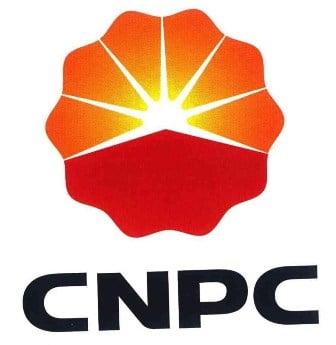China National Petroleum Corporation (CNPC) is China’s major national oil and gas corporation. CNPC is one of the world’s largest integrated energy groups. CNPC company headquarters was located in the Dongcheng District in Beijing, in the country of China. In the 2020 Fortune Global 500 ranks the world’s largest corporations by revenue, CNPC placed 4th rank.
CNPC is the state-owned parent company of publicly listed PetroChina. PetroChina was established on November 5, 1999 as a result of the restructuring of CNPC. In the restructuring, CNPC merged its assets and liabilities related to hydrocarbon exploration and production into PetroChina. Similarly, CNPC merged its refining and marketing, chemicals, and natural gas businesses into PetroChina.
CNPC and PetroChina will be develop the overseas assets through a joint venture. CNPC Exploration & Development Company (CNODC), was 50% owned by PetroChina. In March 2014, CNPC Chairman Zhou Zhiping announced that CNPC would be opening 6 business units to private investors.
This move is intended to allow private investors to participate in the exploration and production of oil, natural gas, refining, chemicals, and other businesses. Additionally, CNPC has a memorandum of understanding with UOP LLC, a subsidiary of Honeywell International Inc.
The 2 companies will collaborate on a range of biofuel technologies and projects in China. Their goal is to develop commercialize advanced biofuels and bio-based chemicals. Unlike the China Petroleum Corporation (CPC Corporation), that was relocated to Taiwan following the fall of the Republic of China following the Communist Revolution in 1949.

CNPC Company can be identified from the beginning as a government arm of the government of the People’s Republic of China. In 1949, the Chinese government established a ‘Ministry of Energy Industry’ dedicated to energy management.
In January 1952, a department of the Ministry of Energy was created to manage petroleum exploration and mining, known as the ‘Chief Petroleum Administration Bureau’. In July 1955, the Ministry of Energy Industry was replaced by a new Ministry, the Ministry of Petroleum.
From 1955 to 1969, approximately 4 oil fields were discovered in Qinghai, Heilongjiang (Doqing oilfield), Bohai Bay and 4 areas in the Sangliao Basin. CNPC was created on 17 September 1988, when the Chinese government decided to establish a state-owned company to manage all petroleum operations in China. This decision led to the abolition of the Ministry of Petroleum.
CNPC’s international operations began in 1993. CNPC subsidiary SAPET has signed a service agreement with the Government of Peru to operate Block VII in the Talara Province Basin. This was followed by an agreement with the Sudanese government In June 1997. The Greater Nile Petroleum Operating Company was established with 40% share of China National Petroleum Corporation (CNPC).
In August 2005, it was announced that CNPC had agreed to buy Alberta-based Petrokazakhstan for US$4.18 billion. It was the largest foreign acquisition by a Chinese company. The acquisition took place on October 26, 2005 after a Canadian court rejected an attempt by LUKoil to block the sale.
In 2006 a 67% stake was sold from the parent company to PetroChina, in June 1997. The company acquired a 60.3% stake in the Oktob Oil Company in Kazakhstan. In July 1997 CNPC won an oil contract for the Intercampo Oilfield and East.
In July 1998, the government restructured the company in line with the principle of upstream and downstream of the oil industry. CNPC spun off its domestic assets into a separate company called PetroChina. On 5 November 2007, HK listed PetroChina was listed on the Shanghai Stock Exchange as an A-share.
In 2012, a subsidiary of CNPC known as Bank of Kunlun, was sanctioned due to its financial ties with the Islamic Revolutionary Guard Corps and the Quds Force. This was a result of alleged support for Iran’s nuclear program. In July 2013, CNPC and Eni entered into an agreement worth $4.2 billion to acquire a 20% share in an offshore natural gas block in Mozambique.
CNPC has proven oil equivalent reserves of 3.7 billion barrels (590,000,000 m3). In 2007, CNPC produced 54 billion cubic meters of natural gas.
CNPC operates 30 international exploration and production projects in countries such as Azerbaijan, Canada, Iran, Indonesia, Myanmar, Oman, Peru, Sudan, Niger, Thailand, Turkmenistan, and Venezuela.
Many of the Company’s exploration projects are operated by Great Wall Drilling Company (GWDC). It is a wholly owned drilling services company of CNPC.
In 2018, the company announced that it was building natural gas storage facilities with a total capacity of 55.6 billion cu m in northern Henan province. They faced with challenges in gas transportation last winter, China accelerated the construction of underground gas storage facilities.
This was due to transportation problems which forced buyers to truck thousands of kilometers of LNG from import terminals to consumption areas. To curb smog and pollution, the China country has embarked on an ambitious program to clean a large number of coal-fired boilers with natural gas.
